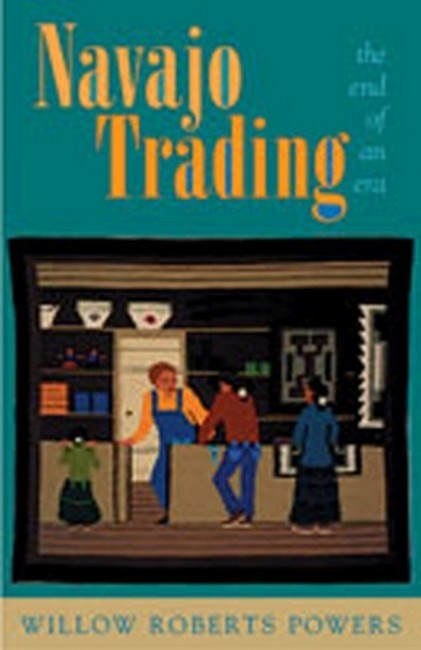Willow Roberts Powers is an anthropologist. Originally from England, she moved slowly westward, settling down in New Mexico. She has written a biography of a trading family, as well as a history of trading. She received a Ph.D. from the University of New Mexico which focused on the history of an anthropological project in New Mexico.
Request Academic Copy
Please copy the ISBN for submitting review copy form
Description
"[Powers's] view that Navajo trading has radically changed since the 1960's is absolutely sound. She also understands the Navajos' perspective on trading and yet admires the older legitimate traders who tried to help their customers. Her book provides a great deal of information." "[Powers] does an admirable job of weaving oral history, newspaper accounts, letters, and legal records to present a well-rounded perspective of a topic that is usually overly romanticized." "YPowers's? view that Navajo trading has radically changed since the 1960's is absolutely sound. She also understands the Navajos' perspective on trading and yet admires the older legitimate traders who tried to help their customers. Her book provides a great deal of information." "YPowers? does an admirable job of weaving oral history, newspaper accounts, letters, and legal records to present a well-rounded perspective of a topic that is usually overly romanticized." "For anyone who has ever visited a trading post in the past, this book will bring back memories of a bygone era. For those who have never been on the Navajo Reservation or to a trading post, this book will give you an inside look as to the inner workings of the trader-Navajo relationship. Anyone interested in learning about the Navajo and trading will need to read this book." "Powers clearly possesses first-rate scholarly credentials. . . . Powers offers a well-constructed discussion of the structure of trading and of the influence of traders, collectors, and anthropologists on the production of crafts." "Powers offers a sound understanding of the ways trading on the Navajo reservation from the 1870s through the 1980s was a cross-cultural experience." "Powers is admittedly sympathetic to the traders, seeing most of them as hardworking people who did in fact serve the Navajo. . . . Overall, this well-researched and personal account provokes reflection."

